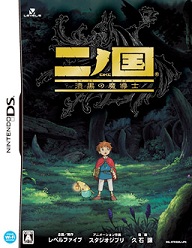Mai-Otome
Type: TV Series (26 Episodes)
Genre: Sci-Fi Fantasy Epic
Version: TV
Reviewed: 4/15/06
 |
“Okay, okay, shut up guys. I’ve got this great idea. How about we take most of the characters of Mai-Hime, and put them in a fantasy world? We’ll make the first half of the series completely ridiculous and then have it serious for the rest, everyone will be happy.”
“That sounds pretty damn stupid, Bob. Pass me another beer.”
“…then how about we give them super maid costumes? And implied incest? Oh, oh, and every other character will be a lesbian. Hot lesbians.”
“Hmm. Tell you what, throw in a couple of attempted rapes, and you’re in business!”
And thus, Mai-Otome was born. Arika Yumemiya dreams of being an Otome, glorified virgin women warriors who wear pretty pretty maid outfits. A series of wacky adventures sets her up with friends, a partnership with the Queen of Windbloom, and lets her show off her determination as favorites from Mai-Hime parade around as secondary characters. It’s light, wacky, and slightly embarrassing to watch without headphones on. A complex system of rank, kingdom, and loyalty is established that the audience completely forgets about as soon as the next girl’s bra comes off.
Then halfway through the series a war starts, and everything goes to hell. Betrayal, double-triple-quadruple crosses become common. As do forced desert death marches, painful personal growth, and really cool fights. Suddenly all those strange little facts in the first half of the series mean something, and viewers will find themselves going back to check them. Or doing what I did, which was zoning out till the next fight or panty shot. Arika finds herself fighting her best friends, murdering her close friends, and giving no airtime to the comedic relief characters of the first half of the series.
 |
| Serious emotional moment, or attempted lesbianism? You decide. |
A gigantic one-hour battle ends it all. Everyone gets to show off their super keen powers that they’ve been holding back, and fans that managed to slog through the filler episodes get an enjoyable conclusion. Then they sit back and wonder why the series couldn’t have been 13 great episodes instead of 26 okay ones.
There are 27 main cast members, which is staggering, since none of them are bit parts. Everyone does a good job, and I’m relieved to say Sunrise managed to bring back all the old cast members of Mai-Hime. Animation goes from great to excellent in quality, especially in the large battle scenes. Character design is sadly rotten, the Otome’s outfit, a combination of maid uniform and school skirt, is frilly and ugly. Arika’s in particular is a joke in hot pink plastic. Weapon design is fairly cool, but gone are the mechanical monsters of Mai-Hime, to be replaced with GIANT SWORDS. Once again, it seems obvious that lonely men thought of this show’s concept. At a bar. During happy hour. On crack.
 |
| Serious emotional moment, or attempted lesbian gangbang? You decide. |
All this being said, Mai-Otome obviously has problems. Chiefly: too many filler episodes, too many characters, too much plot. War epics are naturally exciting to watch, but when you need to have your characters step back for a moment and spend time explaining why I should have been taking notes ten episodes ago, something is terribly wrong. Many of the episodes seem to exist solely to satisfy Mai-Hime fans as they watch their old favorites run around. As the series draws to its close, major plot points are thrown out in favor of time. A running question throughout the series is who the real queen of Windbloom is and who the three people needed to power a super-weapon are. After countless episodes speculating on the issue, the director realized that he was almost out of time and basically threw the whole thing out for something simpler. This should have been done in the first place, and the sounds of millions of fans rolling their eyes in unison is truly terrifying to hear.
But after all this, one still has to admire Mai-Otome. If nothing else, its creators tried. Writing a 26 episode series that mixes old and new characters into a believable war epic is no small feat. For every episode that makse people want to send Sunrise angry letters, there is an episode that causes one to me forget it’s four in the morning and keep watching. The finale in particular is excellent both in scope and writing. For all the series’ ups and downs, it’ll still make viewers care, and that’s not something many animes can claim.
-Andrew Duff








